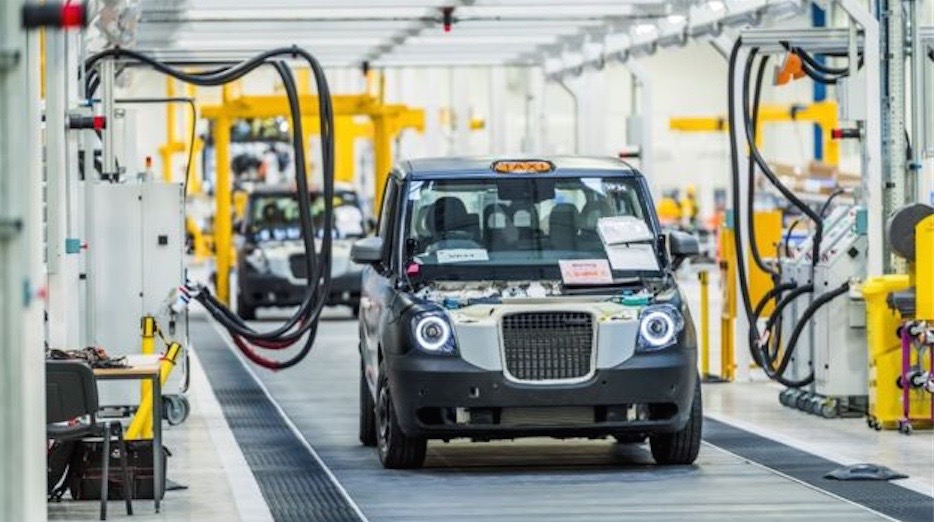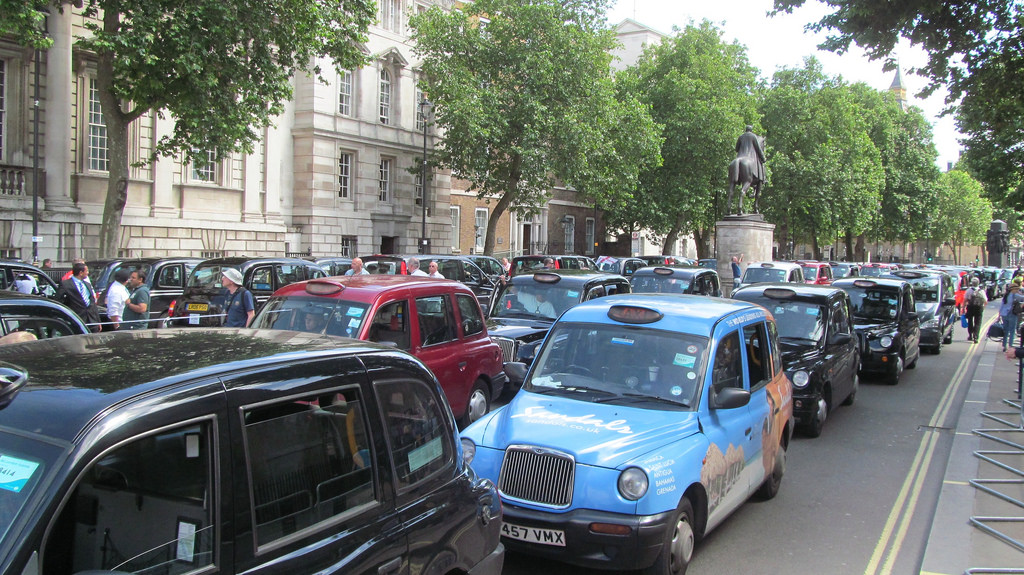Uber has announced it will require its 40,000 drivers in London to switch to hybrid or fully electric cars, and ban diesel vehicles from its fleet, by the end of 2019.
By the end of 2021, it will extend that policy throughout the United Kingdom, where it presently operates in 40 cities.
Uber said it will use only electric cars within London by 2025.
DON'T MISS: London's $27 entry charge for pre-2016 diesel cars to start April 2019
The ridesharing service also said it would establish a £150 million ($198 million) clean-air fund for grants to help its drivers make the switch to fully or partially zero-emission vehicles.
The company will kick off the fund with an initial £2 million ($2.6 million) contribution, and will add a surcharge of 35p (46 cents) to every ride booked through its app within the capital.
The company made the announcement in London on Friday, receiving widespread media coverage.

London Taxi Company factory
“Air pollution is a growing problem," said Fred Jones, Uber’s head of UK cities, "and we’re determined to play our part in tackling it with this bold plan."
Uber also announced an interesting plan to encourage drivers of the oldest (pre-Euro 4) diesel vehicles to scrap them by offering them £1,500 ($1,980) in Uber credits to use for ridesharing instead.
Several European cities have announced plans to ban diesel vehicles, or older diesels with high levels of emissions, from entering their central cores.
READ THIS: Uber urges Portland drivers to lease electric cars
EU diesel-emission standards lagged those in North America by almost a decade, and only this year have caught up to U.S. standards that took effect January 1, 2008.
Meanwhile, the Volkswagen diesel scandal added to widespread public anger over unrealistic fuel-economy ratings that were not borne out in real-world use—meaning that those cars' emissions too were far higher than the legal limits.
German makers have agreed to reprogram millions of recent diesel cars to reduce their emissions, while buying back older and far dirtier diesels sold under earlier and even more lax emission rules.

London anti-Uber taxi protest: June 11, 2014 (photo by Flickr user David Holt)
Meanwhile, Swedish maker Volvo, now Chinese-owned, and British maker Jaguar Land Rover, now Indian-owned, said this year that all future models would include electrified versions.
Those announcements, widely misreported as "all-electric," have added to the sense that the European market is moving away from the combustion engine at a faster pace.
One supplier has even suggested that German makers will introduce their last all-new internal-combustion engine lines by 2022 or so, and end full-scale engine development by 2025.
CHECK OUT: Hey, media, get it straight: "electrified" is NOT "electric," and the difference matters
While such projections may be somewhat overstated, it's no longer debatable that European and U.K. cities and their residents are increasingly interested in ways to reduce or eliminate vehicular emissions.
Whether Uber can in fact get its 40,000 London drivers to make the switch to electric cars within eight years, or hybrids as a bridge vehicle within two, could prove an interesting test of how hard or easy those transitions will be.
[EDITOR'S NOTE: Green Car Reports thanks our tipster, who prefers to remain an International Man of Mystery.]
_______________________________________













